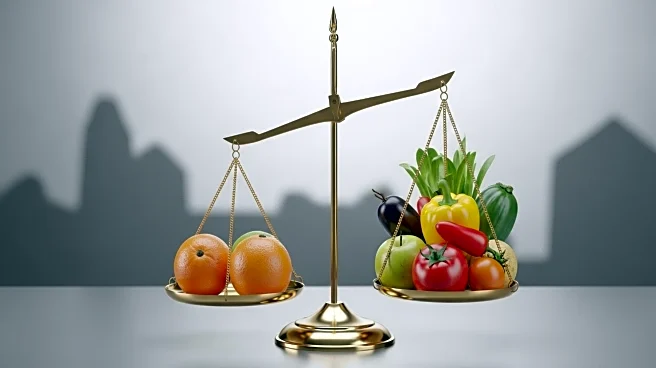What's Happening?
The Oswego Village Board is set to discuss the extension of a 1% grocery tax, which is due to expire statewide at the end of the year. This follows the Illinois General Assembly's decision to repeal the state grocery tax, effective January 1, 2026. Several communities in the Fox Valley area, including Aurora, Batavia, and Montgomery, have already approved ordinances to implement a municipal grocery tax to replace the state tax. Oswego's Finance Director, Andrea Lamberg, highlighted the importance of the tax in maintaining the village's revenue base, noting that it equates to $1 for every $100 spent on groceries. The average family of four spends approximately $1,372 per month on groceries, translating to $13.72 in grocery tax. Lamberg also pointed out that about 50% of groceries sold in Oswego are purchased by non-residents, contributing significantly to the village's revenue.
Why It's Important?
The decision to extend the grocery tax is crucial for Oswego as it seeks to maintain its revenue base amidst the statewide repeal. The tax provides a substantial source of income, particularly from non-residents, which helps alleviate financial pressure on local homeowners and renters. The potential revenue from the tax, estimated at a minimum of $500,000 annually, is significant for the village's budget. This financial strategy allows Oswego to continue funding essential services without increasing property taxes, thereby supporting local governance and community development.
What's Next?
The Oswego Village Board will need to decide whether the revenue from the local grocery tax will remain in the general fund or be allocated to specific areas such as the Water and Sewer Fund. This decision will impact how the village prioritizes its financial resources and addresses infrastructure needs. The board's upcoming meeting will be pivotal in determining the future financial strategy and resource allocation for the village.










